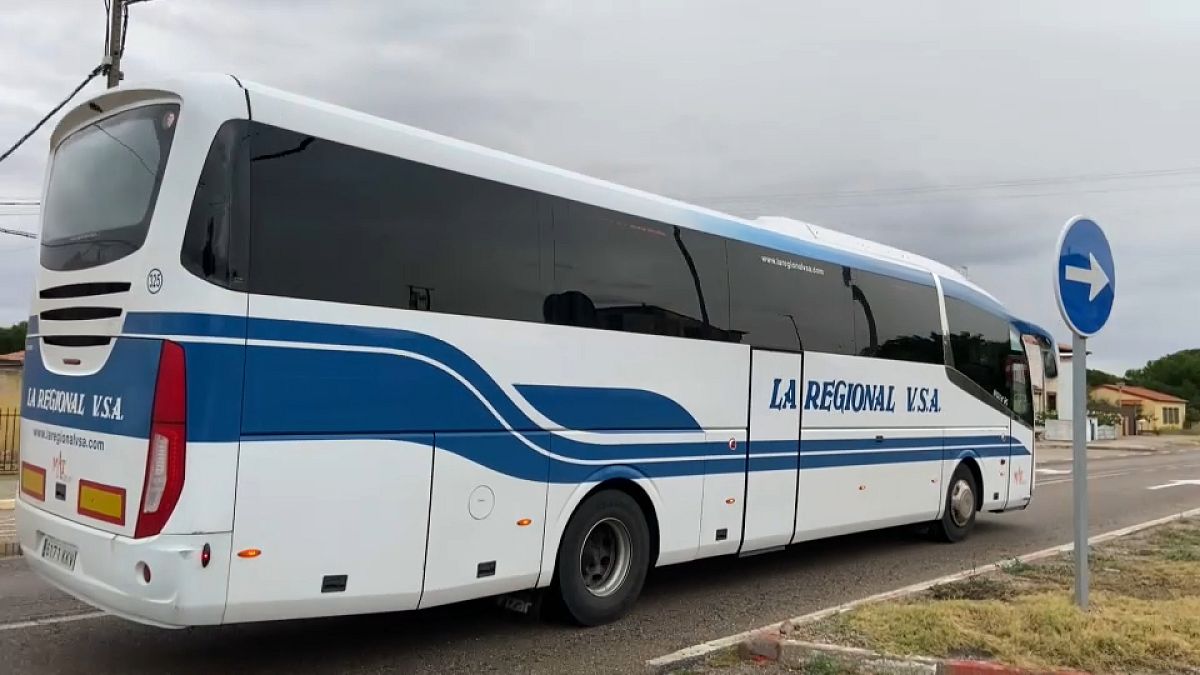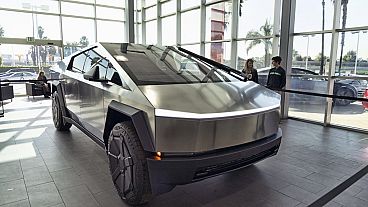The autonomous community of Castilla y León, one of the most depopulated in Spain, manages to bring basic services closer to the citizens.
Castilla y León is one of the least populated areas in Spain – and Europe. Access to essential services can be a challenge.
Lack of resources means the easiest of tasks, such as withdrawing money from an ATM or even going to the supermarket, can become a nightmare.
Josefa Fernández, for instance, needs to travel by bus from Olivares de Duero to travel the 25 km to her nearest health centre. However, there is no regular bus service connecting her village of 300 inhabitants to bigger urban hubs.
But thanks to on-demand coaches, rural communities in the region have found an innovative solution to achieve this.
"It works very well, to be honest. I am very happy. They pick us up at 11:30 and take us back to Olivares. It works very well. I always take it to go to the health centre," said Fernández.
The regional government introduced this service 18 years ago and since then it has attracted the attention of other regions in Spain and abroad that are looking for more efficient means of transport.
Ensuring essential services remain accessible
Customers can book their travel by phone or online. But these on-demand services are more than just a convenience; they are an essential tool to ensure that essential services remain accessible to everyone, no matter where they live.
Castilla y León has a population density of only 25 people per square kilometre. Around 90 per cent of the population lives in towns of less than a thousand inhabitants.
With fewer passengers and limited resources, the regional transport department has found a solution. Unlike conventional bus routes, on-demand buses take variable routes, avoiding unnecessary stops.
"We can reach more places at a lower cost. And of course [it is beneficial] for the environment because if we don't travel unnecessary kilometres, the emissions we emit are lower," María González Corral, Castilla y León's Regional Minister for Mobility, said.
For more on this story, watch the video in the media player above.



